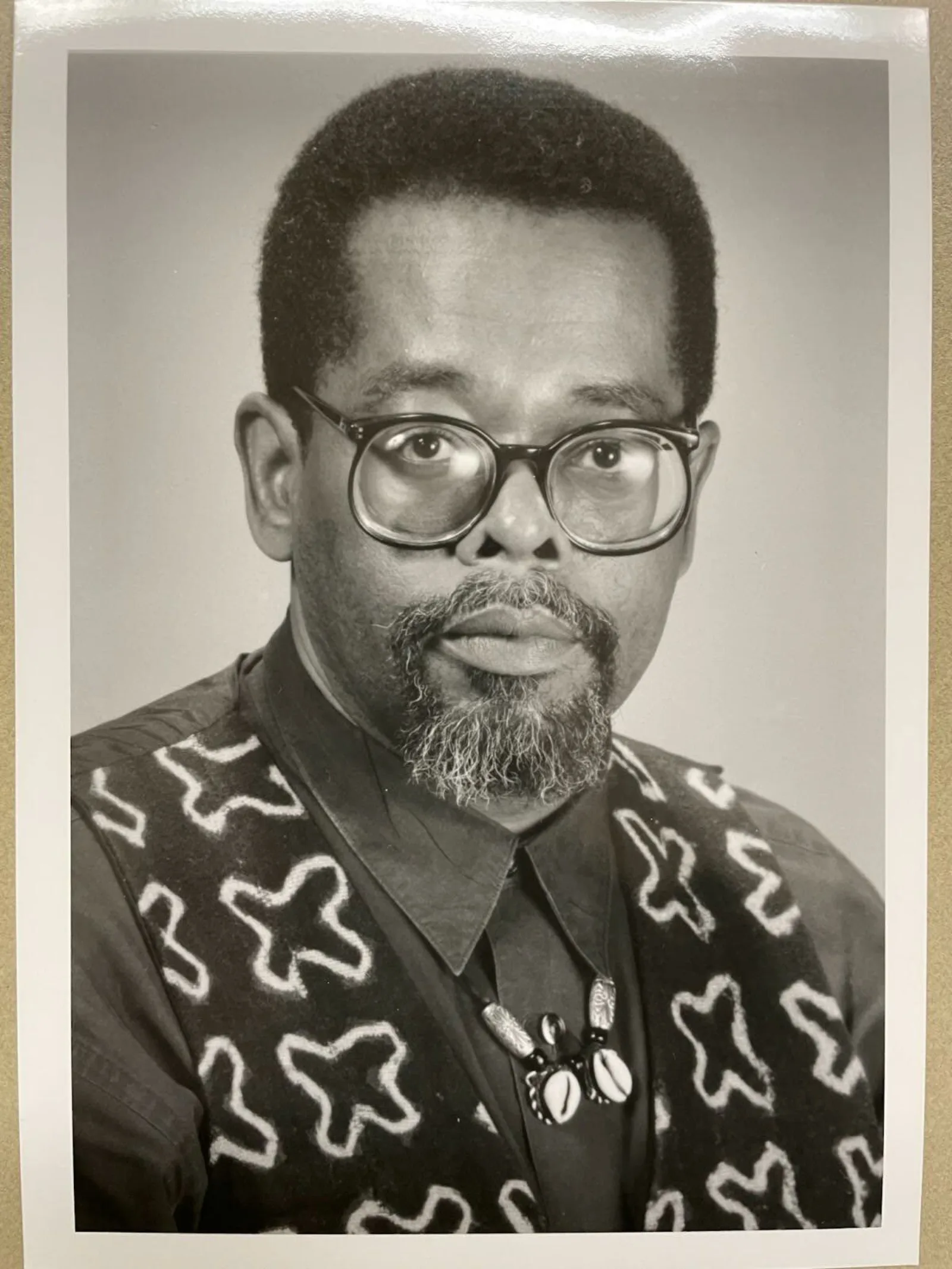Last summer, I interned with the Modern Manuscripts and Archives Team helping to organize the documents of the late Harold Lucas (1942-2022). This collection came to the Newberry in roughly 40 boxes over the course of 2020-2023. Kineyshi Fils-Esperant, my co-intern from Northwestern University, and I had quite a task on our hands, especially considering the subject of the collection was unknown to the both of us. And yet, our lack of knowledge turned out to be a uniquely valuable circumstance. Sifting through the collection gave us a thorough impression of Lucas’s public and private life and legacy without any preconceived notions.
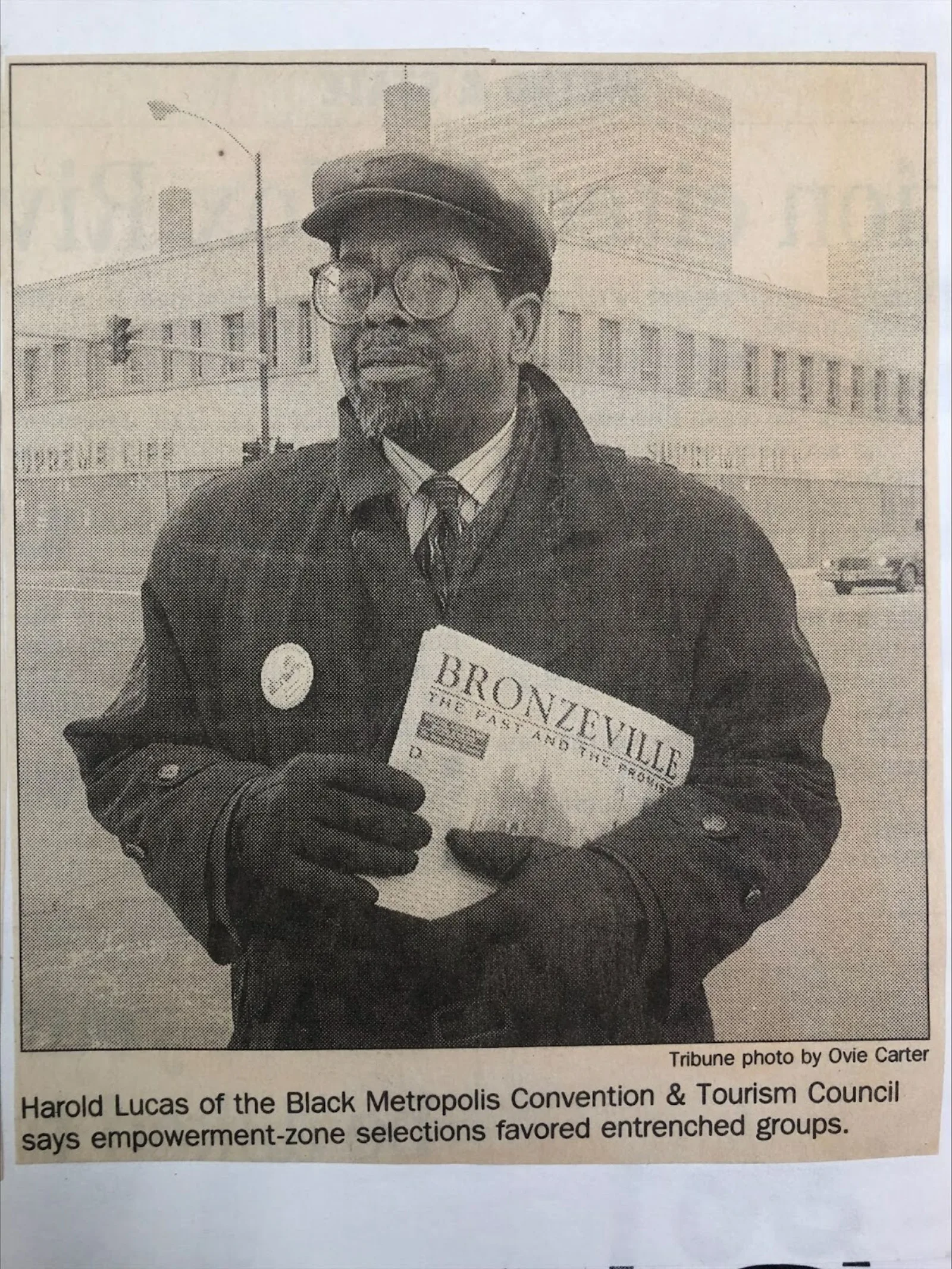
Lucas is most well known as the Bronzeville Historian (often nicknamed “the Godfather of Bronzeville”) who helped save notable landmarks, such as the Supreme Life Insurance Building, from demolition, while also promoting heritage tourism in Chicago’s South Side [Figure 2]. But the vast amount of material in this collection indicates that such a brief description hardly encapsulates who Lucas was. Beyond the newspaper articles that detail his exploits in the public eye, there also exists an array of private documents that lent themselves to my ever growing perception of Lucas.
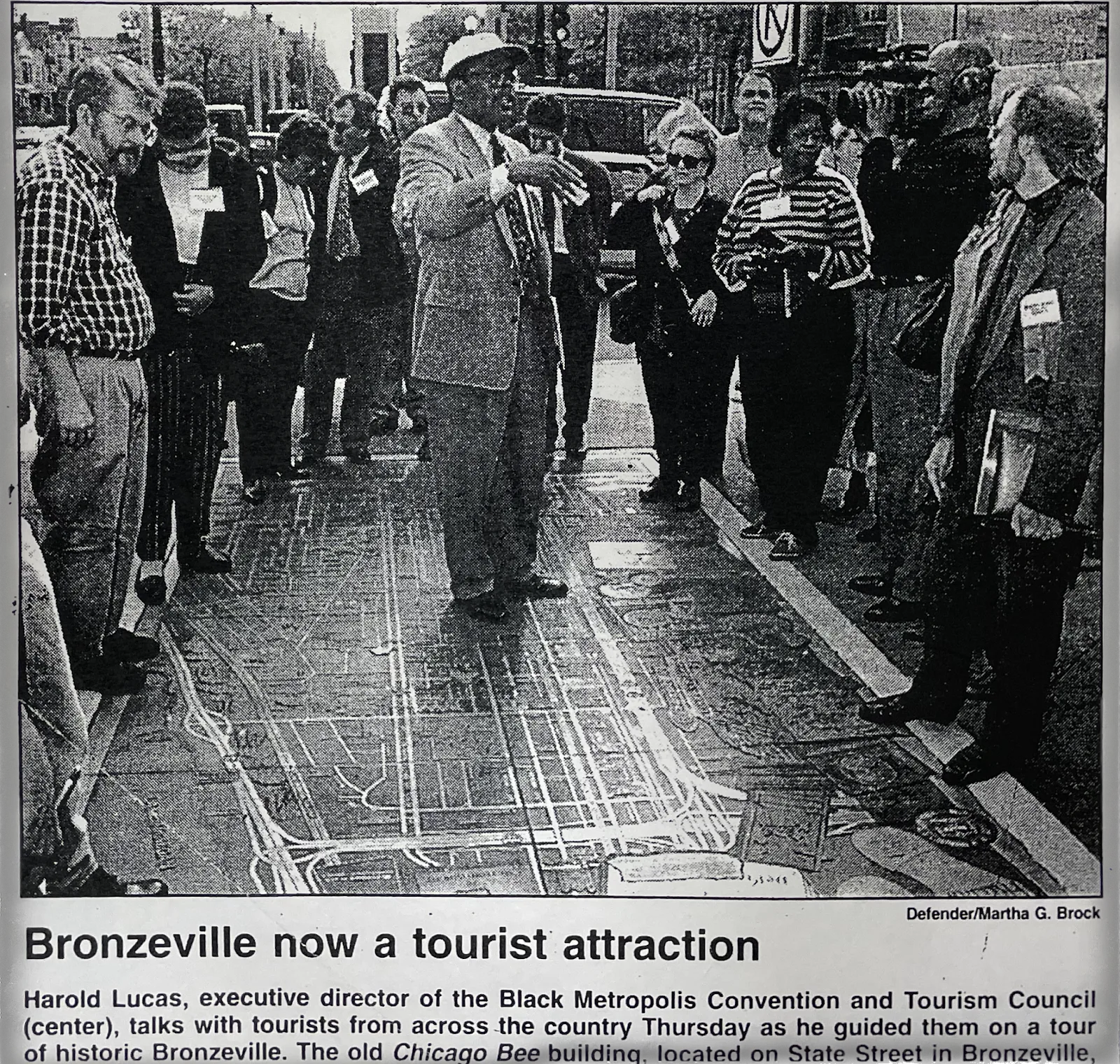
The items that reflect Lucas’s personal life paint the most comprehensive picture of his humanity; especially those that show his fatherly characteristics. Some boxes contained Lucas’s correspondences with his children, which are perhaps the most touching items of the collection. Out of respect for Lucas’s family, I won’t share these personal documents; there is a tenderness to them that I do not want to impose upon. That being said, his nature as a parent was evident to more than just his children. His compassion made its way out to all the Bronzeville youth.
Lucas’s drive to restore Bronzeville was predicated on his focus towards the next generation. For decades, he spoke at schools in the Bronzeville area to convey the importance of student engagement in local activism. One document where this sort of outreach is evident exists in the transcript of a speech Lucas gave to Price Elementary School in 1996 [Figure 3].

In such documents, a clearer image of Lucas as a father, apart from his legacy as the Godfather of Bronzeville, comes to surface. He was keen on creating a foundation for prosperous living that could be built upon, to ensure his children and grandchildren could live in a world better than the one he was accustomed to [Figure 4].

Lucas was aware of the threats many young African Americans in Bronzeville faced, and he hoped to direct their path down a route free of such baleful circumstances. He believed they could be the ones to usher in a life of prosperity in the Black Metropolis district, with a hope that the inhabitants would honor a previously endangered history [Figure 5].

In the closing of his speech, Lucas showed he was as conscious of the future as he was of the past. As is the case for activists like him, preserving history is a forward-moving endeavor filled with many obstacles. To execute his vision of a restored Bronzeville, Lucas felt that his words must be heeded by the youth even if it was difficult to comprehend. Therefore, he makes clear that his desperation is an expression of love, which undoubtedly finds its roots in his experience as a father [Figure 6].


These words carry a vibrancy that transmutes them into utterances that boom from the page. Lucas’s transcript is so potent that I felt I could hear him speaking, though I had never heard his voice before. As such words reside with the children from that day, the message now too resides with me and all of you, loud and clear.
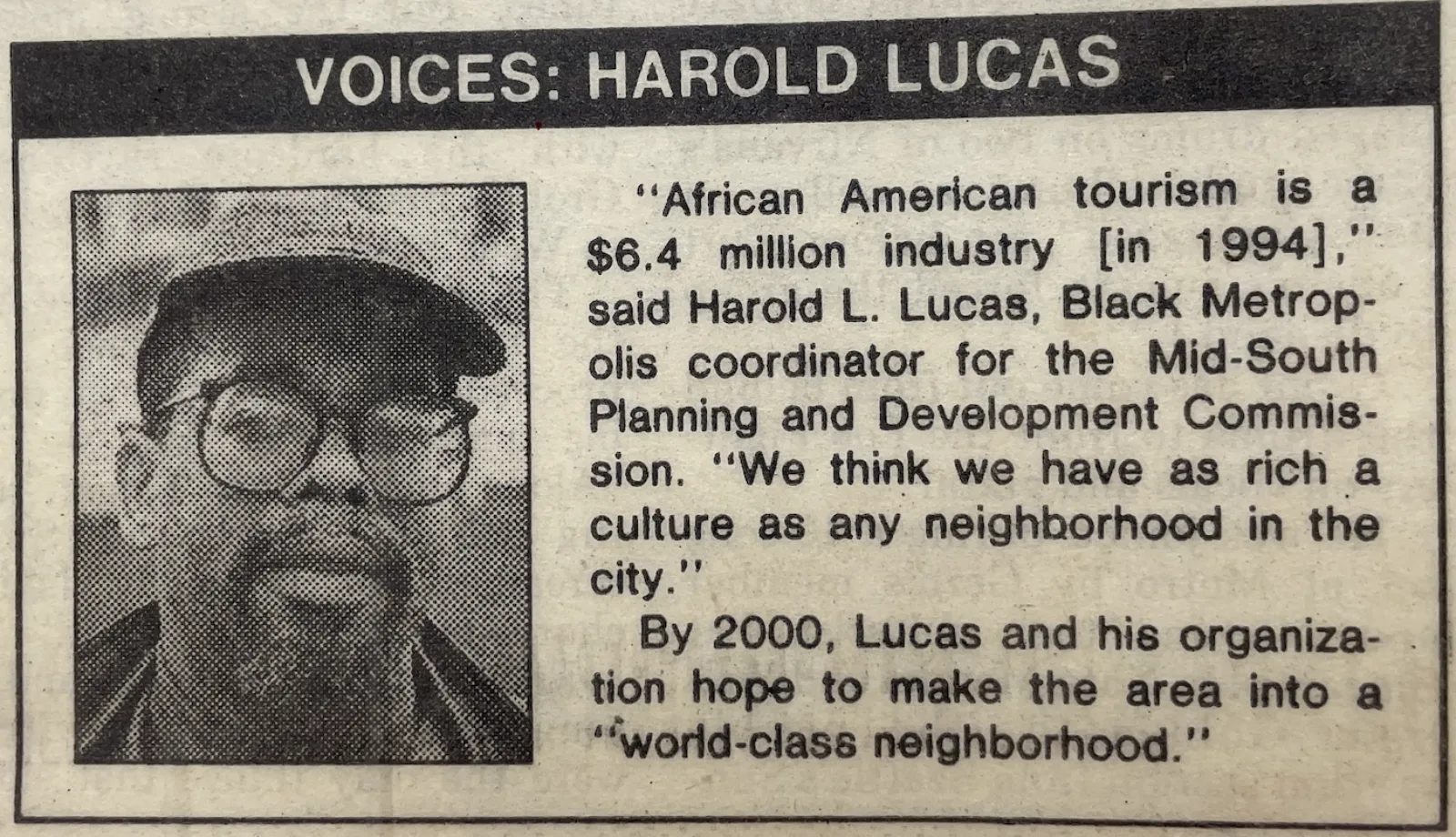
Harold Lucas’s collection embodies a transcendental vitality. Though Lucas passed away over a year ago, what remains are his documents that draw breath in their housed state. The collection produces a sustainable heartbeat, for it carries a man’s legacy that is alive and kicking.
Lucas will be remembered for many grand achievements in heritage tourism and landmark preservation, as with the Supreme Life Insurance Building. But within his collection, you’ll find pathways to many simpler, behind-the-scenes moments that detail the life of a loving father. Not only did his children benefit from his compassion, but all the youth of Bronzeville. And through them that compassion endures.
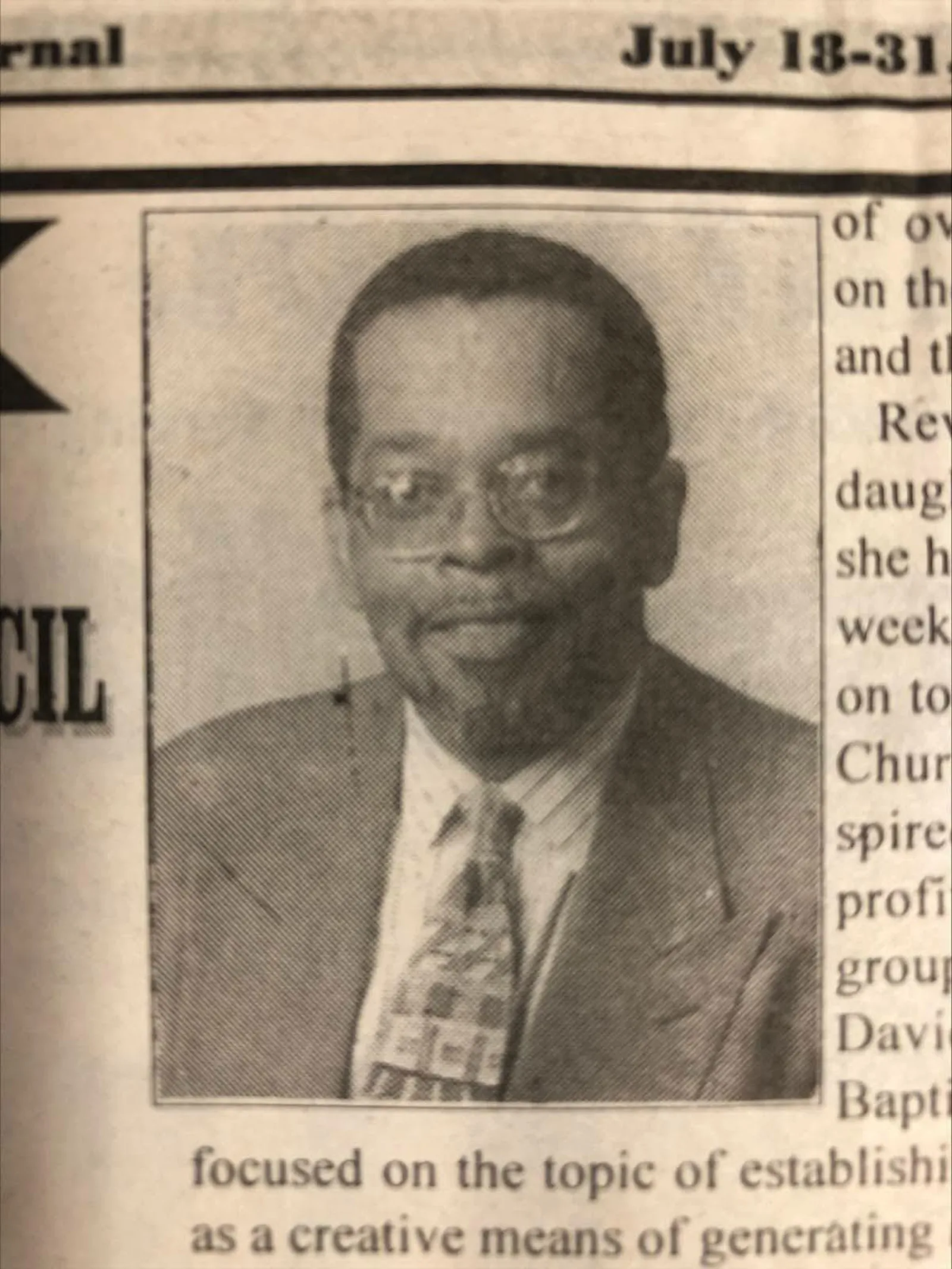
About the Author
Nico Marabella is the Administrative Coordinator for the Public Engagement department at the Newberry. He previously worked for the Newberry’s Modern Manuscripts and Archives department as a summer intern. The Harold Lucas Files are currently in the cataloging process at the Newberry and will be available for viewing in our reading rooms at a later date.
